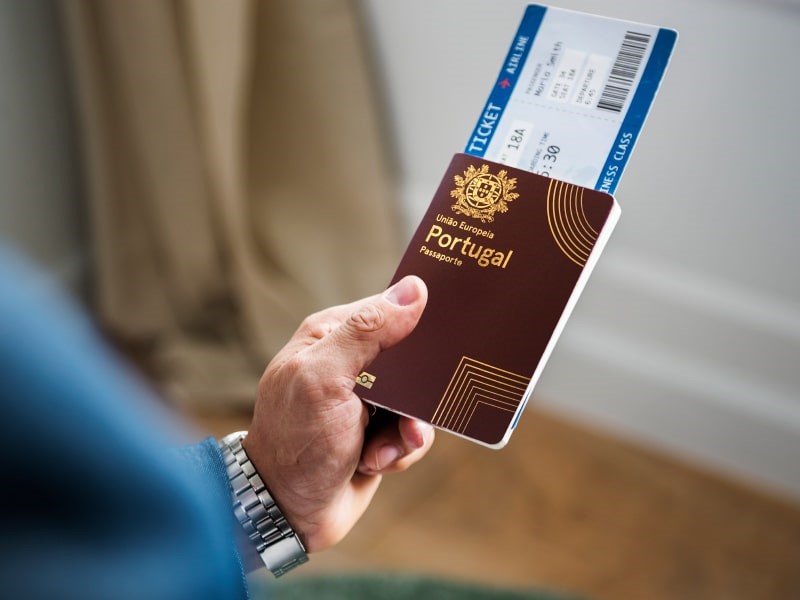SUMMARY
The Portuguese Notaries’ Association has announced that it will publish an internal regulation to regulate real estate acquisitions made using cryptocurrencies, in cases where conversion to legal tender does not occur.
INTRODUCTION
Having a considerable number of merchants and service providers that accept cryptocurrencies as a means of payment is not new in Portugal. However, the purchase of real estate with cryptocurrencies, although it has been common in foreign jurisdictions for some time, has only recently gained prominence at national level.
Portugal is still considered by many foreign investors, both individuals and companies, as a “tax haven”, despite not being so.
In fact, without prejudice to the recent regulatory framework applicable to cryptocurrencies, which was introduced with the 2023 Budget Law, Portugal continues to be one of the countries with the least onerous taxation on holders of income derived from such assets (e.g. exclusion from taxation of gains from assets held for more than one year), which has contributed to many foreign investors opting to move to Portugal.
At the same time, many of these investors have sought to understand from national registry offices how real estate acquisitions with cryptocurrencies are processed in Portugal, which has triggered the recent pronouncement of the Portuguese Notaries’ Association on this issue.
ACQUISITION OF REAL ESTATE IN PORTUGAL
In the international context, as already mentioned, Portugal is considered an attractive destination for cryptocurrency investors, which has consequently triggered a growing demand for clarification as to the practical and legal procedures applicable to real estate acquisitions using cryptocurrencies.
Recently, the President of the Portuguese Notaries’ Association expressed his opinion on the need for the national legislator to move forward with the regulation of this issue.
However, considering that there is no legal provision preventing the acquisition of real estate with cryptocurrencies, the Portuguese Notaries’ Association has decided to draft an internal regulation that will provide its professionals with detailed guidelines to be adopted for this type of transaction, where there is a significant risk of money laundering.
On the other hand, we note that the acquisition of real estate with cryptocurrencies, without their prior conversion into legal tender, translates into a typical barter contract.
Thus, according to recent information disseminated by the Portuguese Notaries’ Association, said regulation will now provide that real estate acquisitions through cryptocurrencies will have to take the form of typical real estate barter contracts and observe certain prior communication procedures, namely:
- the prior communication to the notary of the identification data of the parties, the price and the type of cryptocurrency involved;
- the delivery of copies of the records of the cryptocurrencies (from their acquisition to the time of conclusion of the exchange) as well as the respective storage portfolios.
These data will have to be provided up to five days before the date foreseen for the execution of the barter contract, since notaries will have to communicate them to the Central Bureau of Investigation and Prosecution and to the Financial Information Unit (“Departamento Central de Investigação e Ação Penal e à Unidade de Informação Financeira”).
In situations where the deals concluded exceed the amount of €200,000, and considering the high volatility of the cryptocurrency market, notaries will also have to compare the value of the cryptocurrencies at the contract date and their value at the execution date, in order to rule out possible suspicions of money laundering.
Finally, despite not being a novelty in Portugal, it should be noted that in the case of real estate acquisitions made with cryptocurrencies that are converted into legal tender on the date of the deed, the procedure will continue to be identical to the execution of a traditional purchase and sale contract.
CONCLUSIONS
It is clear that real estate acquisitions with cryptocurrencies may be made in Portugal: (i) by entering into a barter contract, with specific rules for such purpose or (ii) by entering into a traditional purchase and sale contract (only in cases where the acquisition is made after the cryptocurrencies have been converted into legal tender).
In this domain, the Portuguese Notaries’ Association will be the first entity with competence to supervise the prevention of money laundering to come forward with specific regulations on cryptocurrencies.
Notwithstanding this (albeit small) progress, the ideal would be for the legislator to implement a specific legal framework for this type of transaction, to promote greater legal certainty for the parties involved and greater control over money laundering.
***
Lisbon, March 29, 2023
Rogério M. Fernandes Ferreira
Joana Marques Alves






